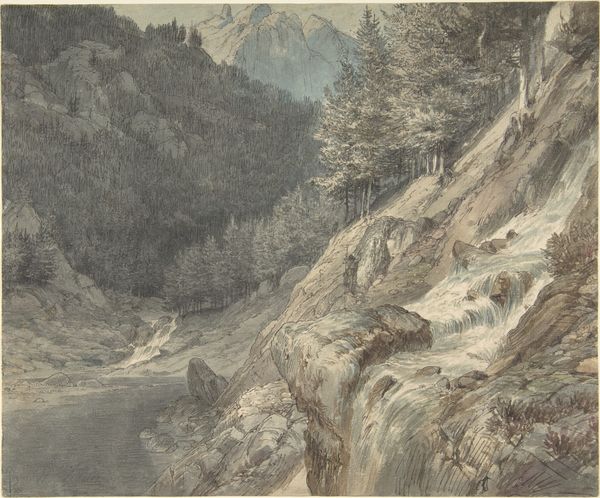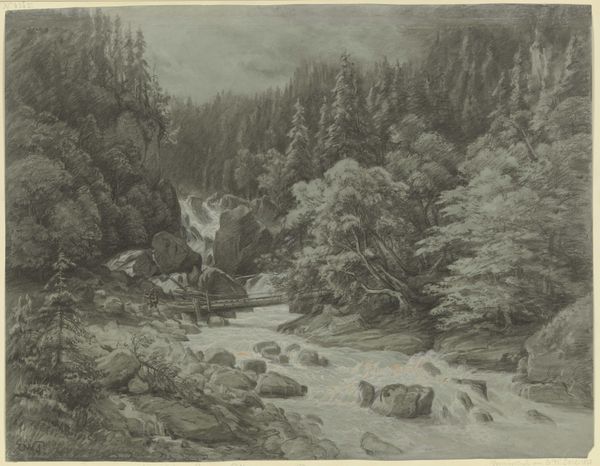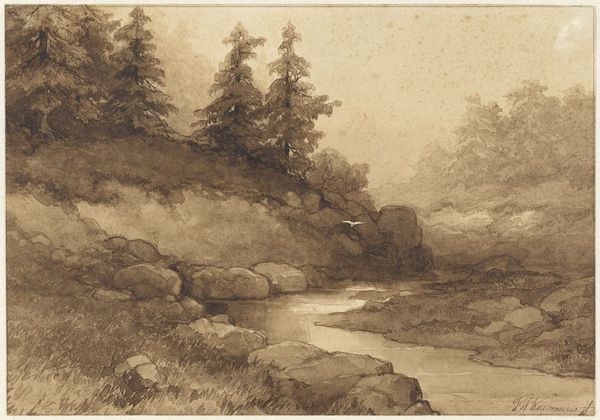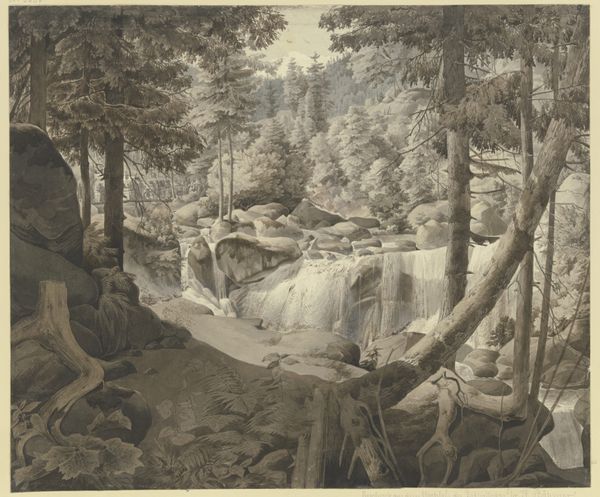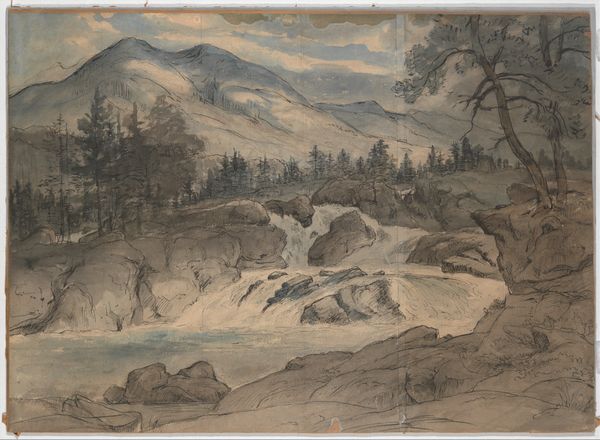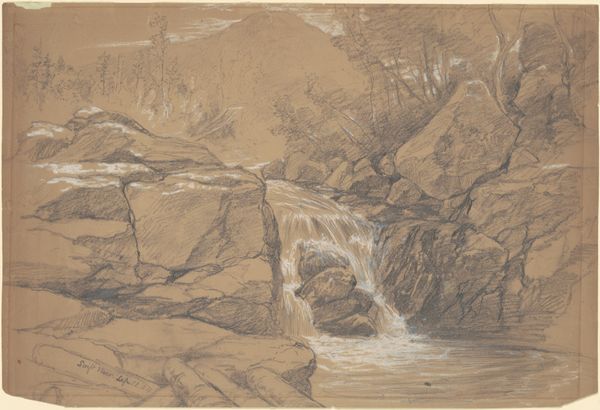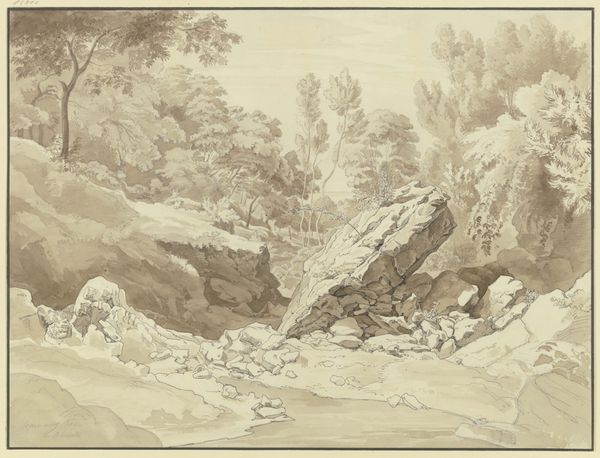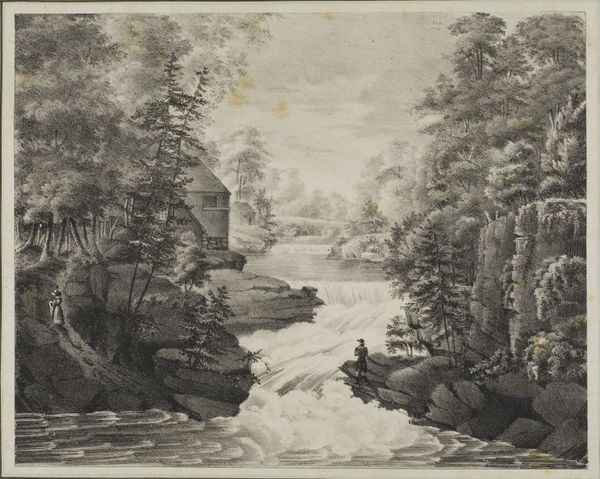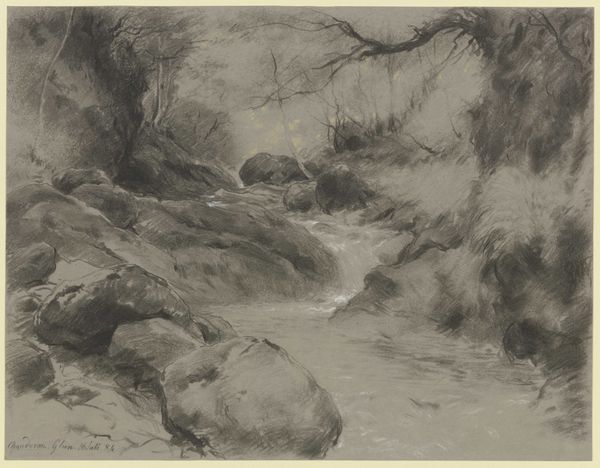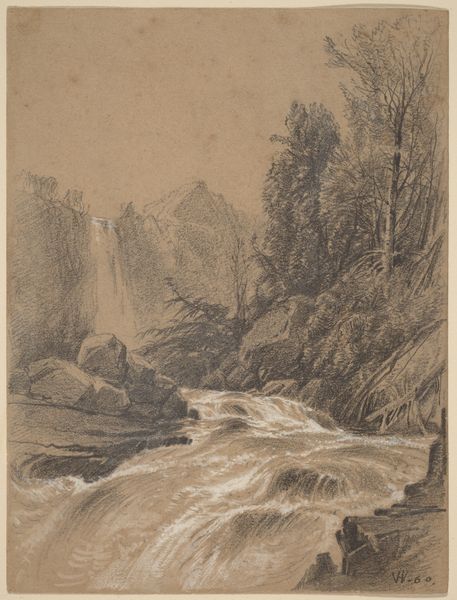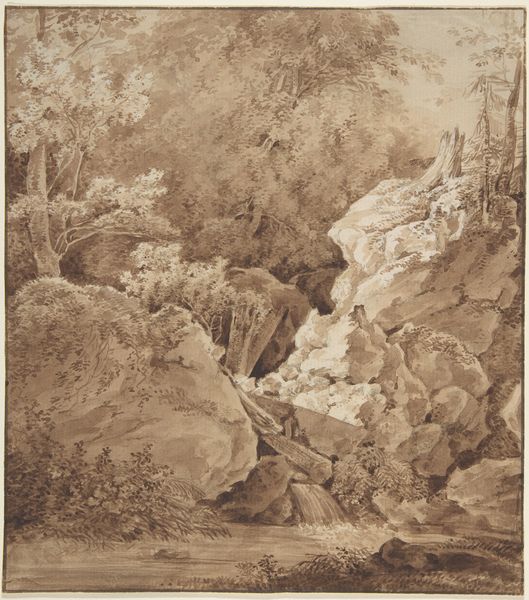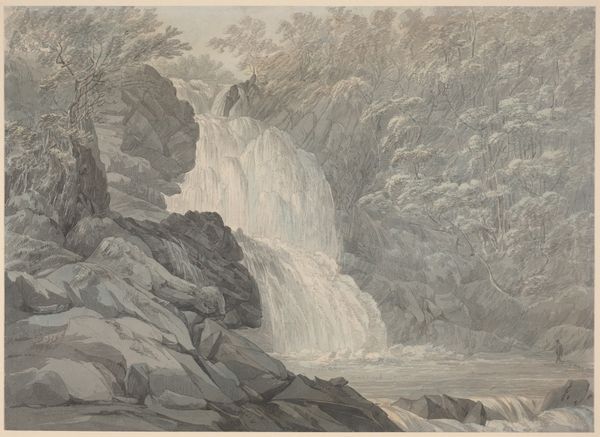
Dimensions: height 315 mm, width 385 mm
Copyright: Rijks Museum: Open Domain
Ludwig Munthe created this landscape with a waterfall in the mountains using pencil and watercolor on paper. The loose application of watercolor gives a soft, ethereal quality to the scene, particularly in the rendering of light on the water's surface. The pencil work, especially in the foreground trees, offers a sense of structure. The combination of techniques results in varying textures. The process reflects a tradition of plein air painting – working outdoors to directly capture the atmospheric effects of a landscape. The relative ease of transporting paper and watercolor allowed artists like Munthe to explore remote and rugged terrains. Though seemingly a straightforward act of representation, landscape painting also played a role in shaping perceptions of nature, with some artists emphasizing idealized or sublime views. The making of this artwork is thus bound to broader social and cultural values. Appreciating how it was made adds depth to our understanding.
Comments
No comments
Be the first to comment and join the conversation on the ultimate creative platform.
